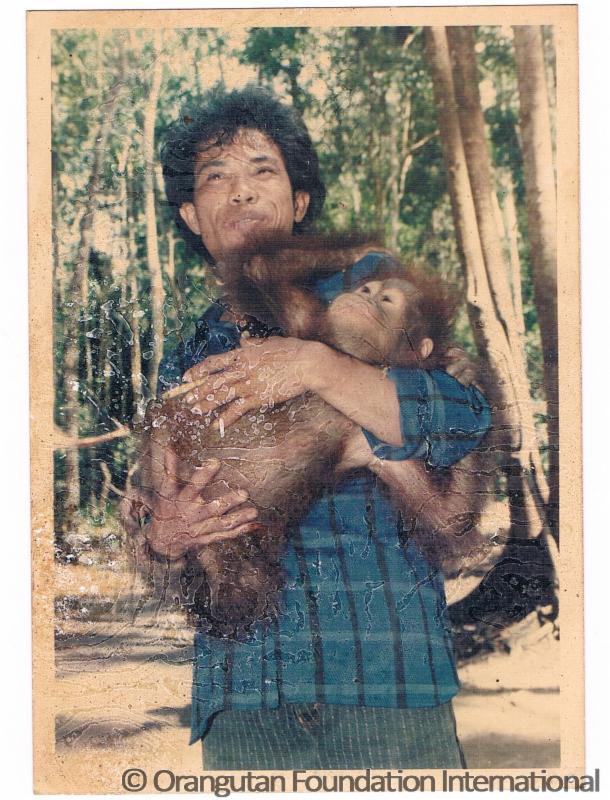|
Feature Story
Mr. Tumin Luther is the manager of OFI's Care Center and Quarantine (OCCQ) but he is so much more than that. Mr. Tumin's dedication and spirit are the cornerstone of much of Orangutan Foundation International's fieldwork in Indonesia. His influence and decision making are critical in all rescue and release operations. He is a small and humble man with boundless energy and a sharp wit. However, it is Mr. Tumin's outstanding experience and his good-natured ways that have earned him the respect of OFI's staff and management team members.
Most impressively, Mr. Tumin has been working for Dr. Galdikas and OFI in some capacity for almost his entire adult life. His incredible career in orangutan conservation started in 1979 as a research assistant at Dr. Galdikas' Camp Leakey in Tanjung Puting National Park. He was then only 19 years old and had not yet completed high school but his obvious forest skills and quick understanding of orangutan and human behavior made it clear to Dr. Galdikas that he was a person with a bright future ahead of him. Having taken young Mr. Tumin informally as an "adopted" son, Dr. Galdikas then convinced the local school system to allow Mr. Tumin to finish his schooling and earn his high school diploma. After completing his schooling, Mr. Tumin returned to work with the research team at Camp Leakey following and observing wild orangutans. His affinity for the orphan orangutans undergoing rehabilitation at Camp Leakey as well as his obvious leadership skills then led him to one of OFI's more remote rehabilitation sites.  During this time period in the 1980s, Orangutan Foundation International was officially established. With increased support, the Foundation's role in protecting Tanjung Puting National Park was able to expand to larger areas in the park. Patrol posts were built and regular patrolling increased, often with Dr. Galdikas in the lead as it had been since her early days in the park. Mr. Tumin also participated in these rolling patrols which took him to every corner of the national park and put him in touch with the most remote locations and national park staff. Walking daily through the forest, Mr. Tumin and patrol teams would often sleep out under the trees in hammocks or on tarps on the ground. They would often use small dugout canoes to quietly navigate small waterways. The patrols searched for illegal loggers and poachers, helping keep poaching, logging, and squatting to a minimum....
|